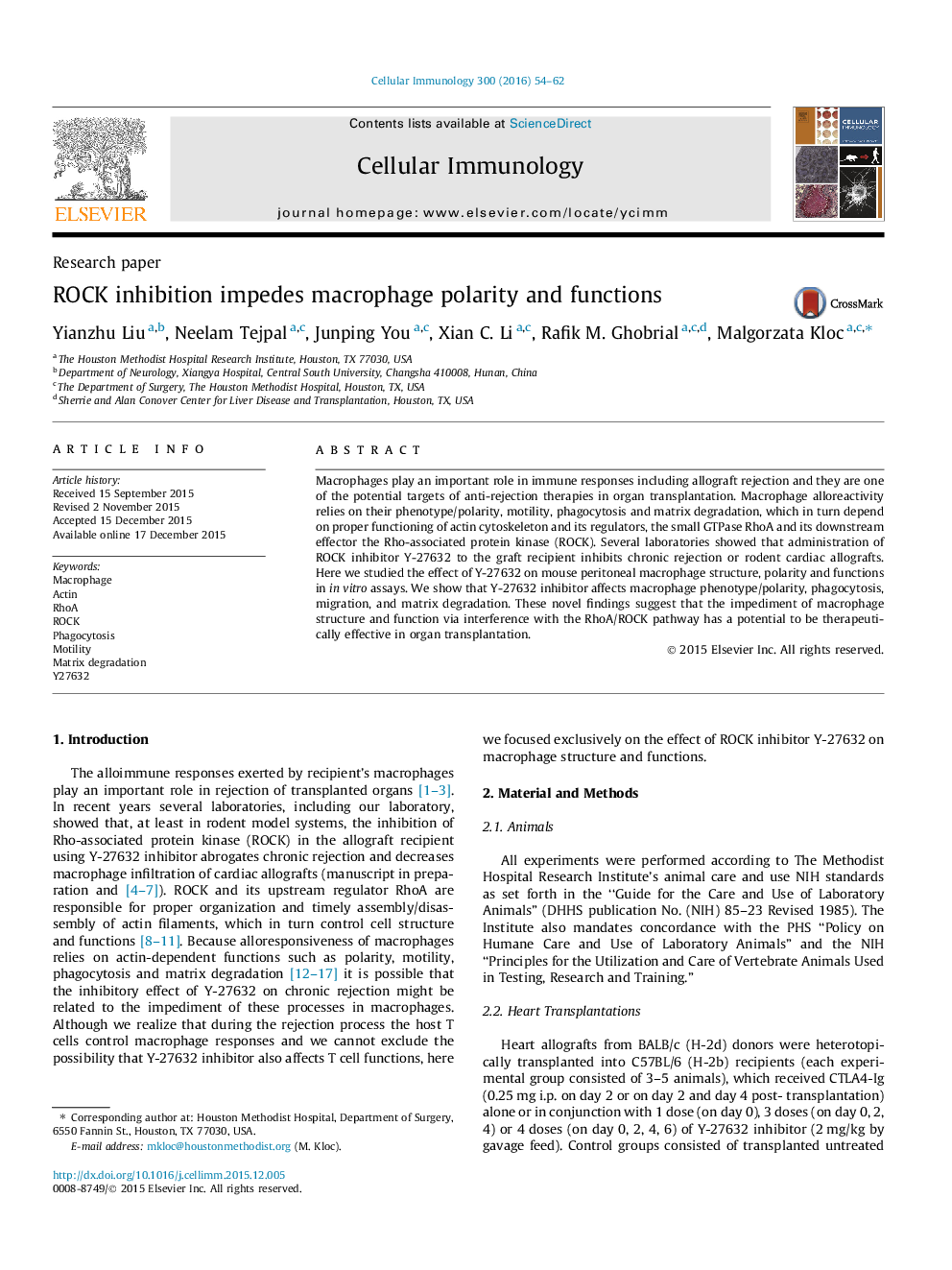| Article ID | Journal | Published Year | Pages | File Type |
|---|---|---|---|---|
| 2166910 | Cellular Immunology | 2016 | 9 Pages |
Highlight•Macrophages play important role in alloimmune responses including rejection of transplanted organs.•We showed that mouse peritoneal macrophage phenotype/polarity, phagocytosis, matrix degradation and motility are sensitive to Rho-associated protein kinase (ROCK) inhibition.•This finding may help to develop anti-rejection therapies in organ transplantation.
Macrophages play an important role in immune responses including allograft rejection and they are one of the potential targets of anti-rejection therapies in organ transplantation. Macrophage alloreactivity relies on their phenotype/polarity, motility, phagocytosis and matrix degradation, which in turn depend on proper functioning of actin cytoskeleton and its regulators, the small GTPase RhoA and its downstream effector the Rho-associated protein kinase (ROCK). Several laboratories showed that administration of ROCK inhibitor Y-27632 to the graft recipient inhibits chronic rejection or rodent cardiac allografts. Here we studied the effect of Y-27632 on mouse peritoneal macrophage structure, polarity and functions in in vitro assays. We show that Y-27632 inhibitor affects macrophage phenotype/polarity, phagocytosis, migration, and matrix degradation. These novel findings suggest that the impediment of macrophage structure and function via interference with the RhoA/ROCK pathway has a potential to be therapeutically effective in organ transplantation.
